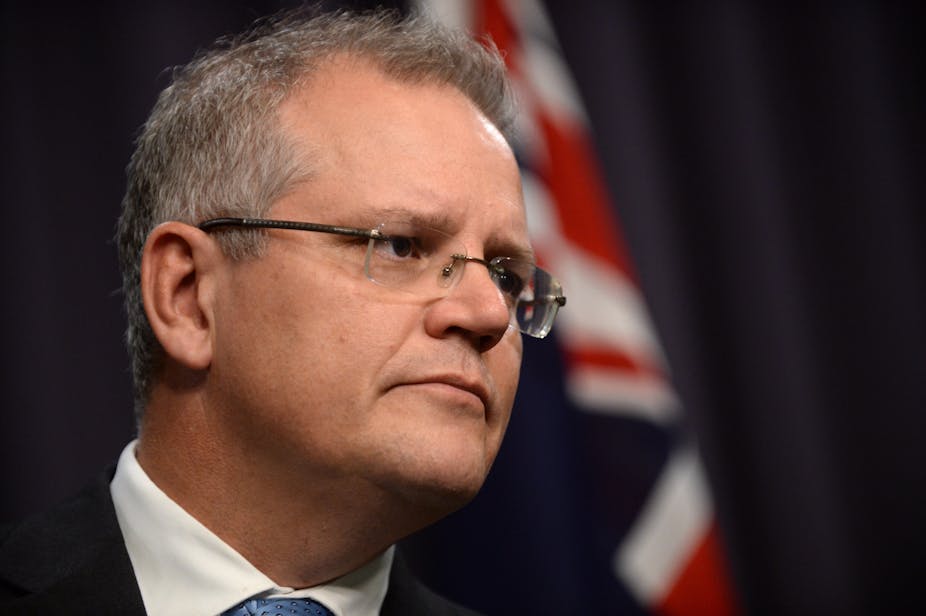The government tries wherever possible to throw a blanket of secrecy over the Manus Island detention centre. But now Tony Abbott could face an unusual challenge to the policy of minimising information.
The Senate committee investigating the February violence at the centre, which resulted in Iranian asylum seeker Reza Barati being killed, is expected to seek the government’s help to facilitate a visit to inspect the place.
This could be seen as a test of the executive versus the parliament. While having the senators go to Manus would be awkward for the government, so would refusing to assist them.
The Prime Minister’s office says access to the Manus centre would be a matter for the Papua New Guinea government “as it is in their sovereign jurisdiction”.
This is a side step. It’s hard to see that a word for or against the visit from the Australian government wouldn’t be pretty influential with PNG.
The visit would elevate the debate about what’s happening at Manus. The committee, whose inquiry was initiated by Greens senator Sarah Hanson-Young, will hold its formal hearings in Australia, to put them beyond any legal ambiguity. In late May and June it will question whistle blowers.
But its presence at the centre and what it saw there would shine attention on how people are being treated. Hanson-Young says: “The Australian parliament appropriates hundreds of millions of dollars a year to run the Manus Island detention centre. We have a responsibility to know what’s been going on inside.”
As it is, the debate about the lack of human rights at the Manus centre seems to have been numbed. This week Fairfax had significant video footage of the aftermath of the riot; among other things it indicated that where Barati had died had not been roped off, which compromised evidence.
But whatever comes to light has diminishing impact in the public arena with its rushed news cycle, and certainly none on the government.
Immigration Minister Scott Morrison is sitting on the interim report about the February incident done by a former head of the attorney-general’s department, Robert Cornall. The minister uses the excuse that Labor didn’t release interim reports (as if the ALP should be the benchmark of best practice – in opposition Morrison would have had something to say about that).
Morrison says he hopes the final Cornall report – which will be released - and other inquiries will be completed “soon”. One can only wonder why it’s taking so long. The government is able to use the fact of ongoing inquiries to avoid questions on details as they come up.
On Monday the ABC’s Four Corners will revisit the February events. Advance publicity for the program says it “reveals how the Papua New Guinea government’s failure to set up a processing and resettlement system created the preconditions for protest and disorder”.
As always, we continue to hear from the government that processing on Manus is progressing. But still no one has come out of the system. Morrison said this week: “We are in monthly bilateral discussions now with PNG and Nauru … We are expecting the first round of decisions to come down this month and that is what we are working to both on Nauru and Manus Island.”
It is disgraceful that the Manus processing has been so inefficient.
Morrison, who like Joe Hockey has long-run ambitions for leadership, would feel he has fulfilled his brief to the letter – the boats have stopped.
Yet he is condoning 1300 people being held on Manus in dreadful conditions. The situation is made more difficult by the fact that Australia has to operate with PNG, which has formal authority on the ground. But Australia pays the bills and holds the real power. Even with all the problems, processing should have been done faster and Morrison should have found a way to get the PNG authorities to achieve that.
But in the government’s mind asylum seekers are second class individuals when it comes to treatment and rights. They are automatically regarded as untrustworthy, not to be even listened to.
We saw this in the “burnt hands” allegations. Morrison and other government figures condemned the ABC’s initial story in the most extravagant terms, dismissing asylum seekers’ “unsubstantiated claims” about the behaviour of navy personnel.
Much later the ABC had people on camera relating what they alleged had happened. But that made no difference to the government. It had no intention of interviewing the people. Its rhetorical carpet bombing had ensured that whether they were telling the truth or lying didn’t matter anymore. No one was listening.
With Manus, it is different. A young man has died and the Australian government obviously carries a share of responsibility.
It is about time it stopped hiding behind the numerous inquiries and provided some answers. It could start by putting out the Cornall interim report.
Listen to the newest Politics with Michelle Grattan podcast, with guest Jamie Briggs, assistant minister for infrastructure and regional development, here.

